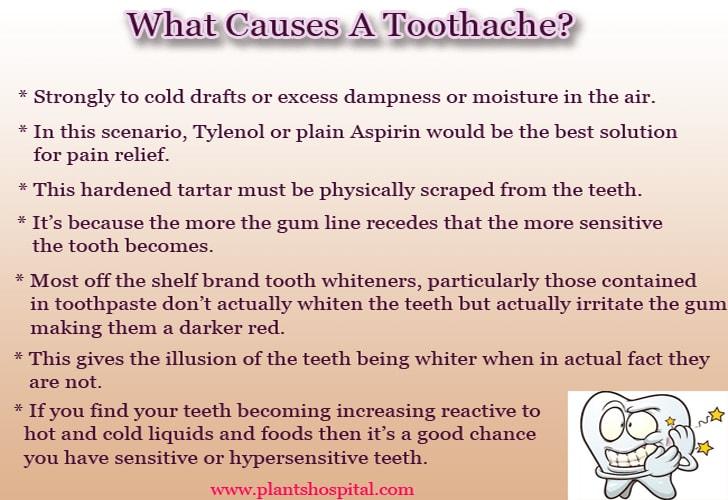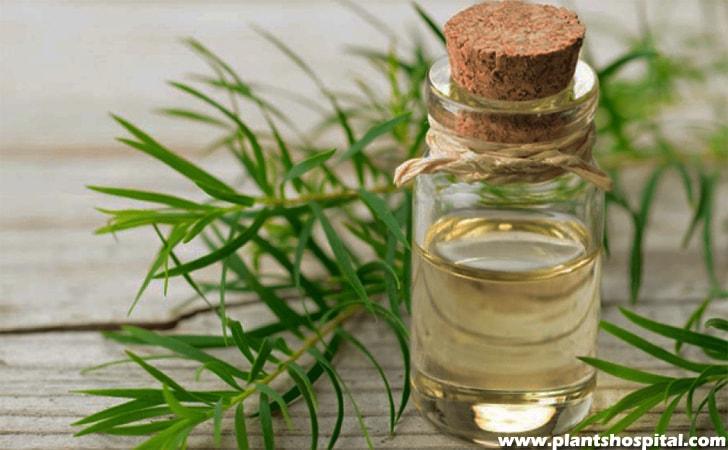Table of Contents
What is A Toothache?
But it’s one of those things where until you experience it firsthand for yourself nobody on the planet can ever explain it to you, no description is apt enough to detail the pain of a toothache until you feel the intense shock of electricity permeate your tooth for the first time or the throbbing wave of pain that radiates from your jawbone that won’t let up and for some reason seems to throb in time with your heartbeat.
A toothache can make your life a complete misery and it can bring grown men to their knees and until you do something about it it’s nearly impossible to get on with your life.
Eating and sleeping are difficult and so your health, as a result, deteriorates, not to mention the symptoms of the toothache itself could be an indication of more serious problems such as infection.
- Top 20 Tea Tree Oil Uses and Unknown Benefits
- Wonderful Ways to Prevent Hair Loss in Women
- Top 10 Natural Easy Ways To Get Rid Of Cellulite: (Homemade Treatment)

What Are The Symptoms Of Toothache?
The pain from toothache is not always severe or constant. It can vary along a spectrum from minor discomfort to extreme agony.
Severe episodes of pain may be preceded by days and even weeks of warning signs such as a minor discomfort when biting on a tooth, or an increase in tooth sensitivity to cold, hot or sweet things (this is called hypersensitivity).
These early symptoms may only last for only a few seconds at a time but if you experience them repeatedly for more than one or two days you should have your teeth assessed by a dentist as soon as possible.
If you’re experiencing tooth pain, whether sharp and throbbing or dull and achy, it can be difficult to bite and chew, concentrate, get through the day, even sleep at night, no matter what over-the-counter medication you take for some relief.
The source of tooth pain may be dental decay, an injury, or an infection in the tooth. Regardless of the cause, if you have ongoing pain it’s time to see a dentist or endodontist for treatment.
Watch Video: Easy Home Cures For Toothache
What Causes A Toothache?
There could be several factors at play where the pain of the tooth itself is merely a manifestation of some other underlying issue. You don’t appreciate it at this moment but your teeth are your body’s warning system that something is wrong.
This can range from something as simple as hypersensitivity in teeth which cause them to react strongly to hot or cold liquids but with hypersensitivity, it can even cause teeth to react
Strongly to cold drafts or excess dampness or moisture in the air.
Over 40 million adults in the US alone (it’s estimated that this proportion applies to the general population) suffer from tooth sensitivity due in part to the poor diet of our day.
If you find your teeth becoming increasingly reactive to hot and cold liquids and foods then it’s a good chance you have sensitive or hypersensitive teeth.
This can also be an aftereffect of the tooth whitening process as the chemical bleach preparation applied to the teeth is acidic and weakens the protective tooth enamel layer increasing the risk of tooth decay and demineralization.
This is why so many people feel that their teeth became noticeably more sensitive and brittle after whitening.

Home Remedies to cure Toothache :-
Salt Water Gargle
Salt has been used for over 3,500 years as a natural food preservative and for its ability to kill bacteria, which is why salt is still recommended to this day for the natural treatment of wounds and infections and has been known to be highly effective in the treatment of toothache.
What makes salt such a great anti-bacterial is that it draws water from bacteria through osmosis causing the bacteria to shrink and die.
Osmosis is the process whereby water from a lower saline concentration travels across the cell membrane barrier to higher concentrations. The bacteria in the presence of high saline or salty environments are destroyed by dehydration which is why salt is such an effective preserve, from the time of the ancient Egyptians and was even used in the process of mummification.
Most toothaches arise from some kind of infection whether, from a cracked tooth or missing filling, bacteria take hold from food particles that have decomposed and are lodged within cavities where infection sets in.
Salt is ideal in the treatment of infection while addressing the issue of pain arising from the infected tooth. If you treat more than just the symptom of pain and treat the cause you will be able to eliminate the pain permanently.
Saltwater has a two-fold purpose as it draws out the infection from the affected gum tissue surrounding the nerve it kills bacteria while giving pain relief at the same time.
Directions
Create a saline solution by simply adding a teaspoon of sea salt to a glass of lukewarm water and rinse around your mouth for around 20 to 30 seconds before spitting out.
The saline solution cleans the area surrounding the tooth and helps draw out some of the infection responsible for the inflammation and pain. This treatment is safe and you can repeat as frequently as required until the pain subsides.
You can also add sea salt or rock salt directly to the tooth or affected area if you don’t mind the salty taste.
Sharp, intense pain should subside within a few minutes of treatment.

Garlic
Apart from warding off vampires, garlic has proven itself over the millennia as an effective antiseptic.
Garlic has been recorded as far back as 3,000 BC for medicinal purposes and was used by the ancient Egyptians, the Romans and the Greeks which is why it is still so
important in these cultures today.
Garlic contains Allicin, the compound responsible for its healing action making garlic a powerful antibacterial agent and a natural anesthetic.
Allicin is released from the garlic once crushed giving pain relief to the affected area it is applied to.
Read More: 19 Surprising Benefits Of Garlic Juice (Drink Garlic Juice Every Day !)
Onion
Like garlic, onion also has its share of miracle healing properties and is a natural antiseptic.
The early pioneers that settled in America used onions to treat asthma and colds.
In China, onions were used to also treat coughs, congestion problems, and bacterial infections. So potent are the medicinal properties of the onion in the treatment of ailments that it has been officially recognized by the World Health Organization.
Directions
- Place a piece of onion big enough to cover the affected tooth. Leave on the tooth for 30 minutes to help kill bacteria and give pain relief.
- If the tooth allows for it, cut off a bite-sized piece of onion and chew it for 2 to 3 minutes.
- This will release the antiseptic qualities of the onion and help the pain to subside.
Read More: 8 Superb Benefits Of Onion Juice You Should Know Of
Clove And Clove Oil
Cloves have been revered for centuries for their antiseptic and anesthetic properties, both its fresh and dehydrated forms are effective in the relief of toothache pain.
The Clove has made several appearances throughout history and was used as far back as 200 BC in China for the relief of toothache pain and to freshen the breath.
During the 19th century, long before the dental hygiene we know of today existed, the dentists of the time would carry liberal supplies of clove oil to numb their patient’s mouths before and after extraction and for the alleviation of toothache pain.
Clove oil is extracted from the clove bud which through its Eugenol content gains its bactericidal, anesthetic qualities making it an effective natural painkiller.
Cloves are still an effective way to manage toothache pain to this day and its longevity throughout the ages is proof of this.
Read More: Clove Oil History, Uses And Benefits For Healing

Tea Tree Oil
Tea tree oil has long been hailed as a natural antiseptic by the native Aborigines of the Australian outback, long before modern-day science was able to confirm its medicinal properties.
The beauty of tea tree oil is its ability to penetrate, this means that it is ideal for deep treatment of the infected tissue affecting the tooth. Its antibacterial qualities kill infection while it’s painkilling and wound healing properties soothe and help repair the damaged tissue.
Directions
Create a mouthwash by adding 3 drops of tea tree oil to 1 glass of water, stir well.
Take a mouthful and swill it for 30 seconds at a time, spit out.
Repeat. Rinse the mouth thoroughly with a solution of lukewarm saltwater.
Do not swallow the tea tree oil mixture.
You should experience a noticeable dulling of the pain and a numbing sensation after the second mouthwash treatment; this is due to tea tree oil’s penetrating properties which permeates the gum tissue to desensitize the nerves transmitting pain signals.
The gums should also reduce pain, redness, and swelling as the tea tree kills the infection caused by bacteria.








